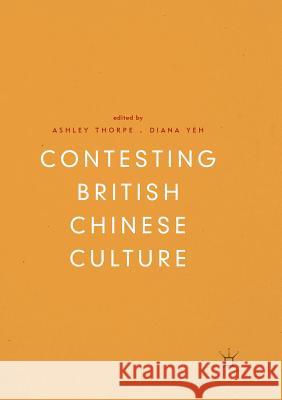Contesting British Chinese Culture » książka
topmenu
Contesting British Chinese Culture
ISBN-13: 9783030100216 / Angielski / Miękka / 2018 / 273 str.
Kategorie:
Kategorie BISAC:
Wydawca:
Palgrave MacMillan
Język:
Angielski
ISBN-13:
9783030100216
Rok wydania:
2018
Dostępne języki:
Ilość stron:
273
Waga:
0.35 kg
Wymiary:
21.01 x 14.81 x 1.55
Oprawa:
Miękka
Dodatkowe informacje:
Wydanie ilustrowane











